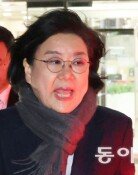Too Few Advisors, Too Many Committees
Too Few Advisors, Too Many Committees
Posted April. 08, 2006 03:05,
A senior official at a civic organization of Daejeon is also an advisor for five committees.
He is an all-around superman who is involved in every area of city administration, from the Committee for Deliberation of Allowance for Social Organizations to the Advisory Committee for Preservation of the Environment, to the Committee on Sustainable Development, to the Committee for the Urban Bus Development, to the Committee for Deliberation of Managing Local Rivers.
His business card lists the names of five committees he is on. This is essential to run for an election, he says. He will run in the local elections scheduled for May 31,
One professor working for a local government is an advisor for as many as 10 committees. This is too many, even though he has expertise.
With the incumbent government being criticized as a committee republic, the number of committees that belong to local self-governing authorities is increasing. Worse yet, those committees are pointed out as wasting taxpayers money because some are not functional or are redundant.
As most of the officials on those committees are either close to heads of self-governing bodies or retired public officials, the purpose of collecting opinions from experts or bodies in various areas is not being realized.
Dong-A Ilbo confirmed that 16 cities and provinces are running 1,391 committees. There are 23,393 members on the committees.
As 234 local governments operate 50 to 100 committees each, the total number of committees of all self-governing authorities is likely to be around 20,000.
The roles of a committee are voting, deliberation, advice and consultation on policies of self-governing authorities. The committees can be considered positive because they allow local residents to indirectly participate in administration.
However, with similar organizations and functions, there are as many as 217 committees that do not hold a single meeting session a year. In the case of some self-governing authorities, 40 percent operate this way.
One committee has not operated once in the last 10 years since its foundation.
In particular, as the heads and members of the committees are public officials and retired bureaucrats rather than figures from the private sector, many of the committees serve as a rubber stamp, which is different from their original purpose.
The budget for operating such committees reaches 380 million won in Busan, 170 million won in Gyeongbuk and 200 million won in Jeju.
Ki-Jin Lee Seung-Ho Jung doyoce@donga.com shjung@donga.com





![“한동훈, 정치생명 걸고 무소속 출마해 평가받는 것 고려할만”[정치를 부탁해]](https://dimg.donga.com/c/138/175/90/1/wps/NEWS/IMAGE/2026/01/19/133186982.1.jpg)

